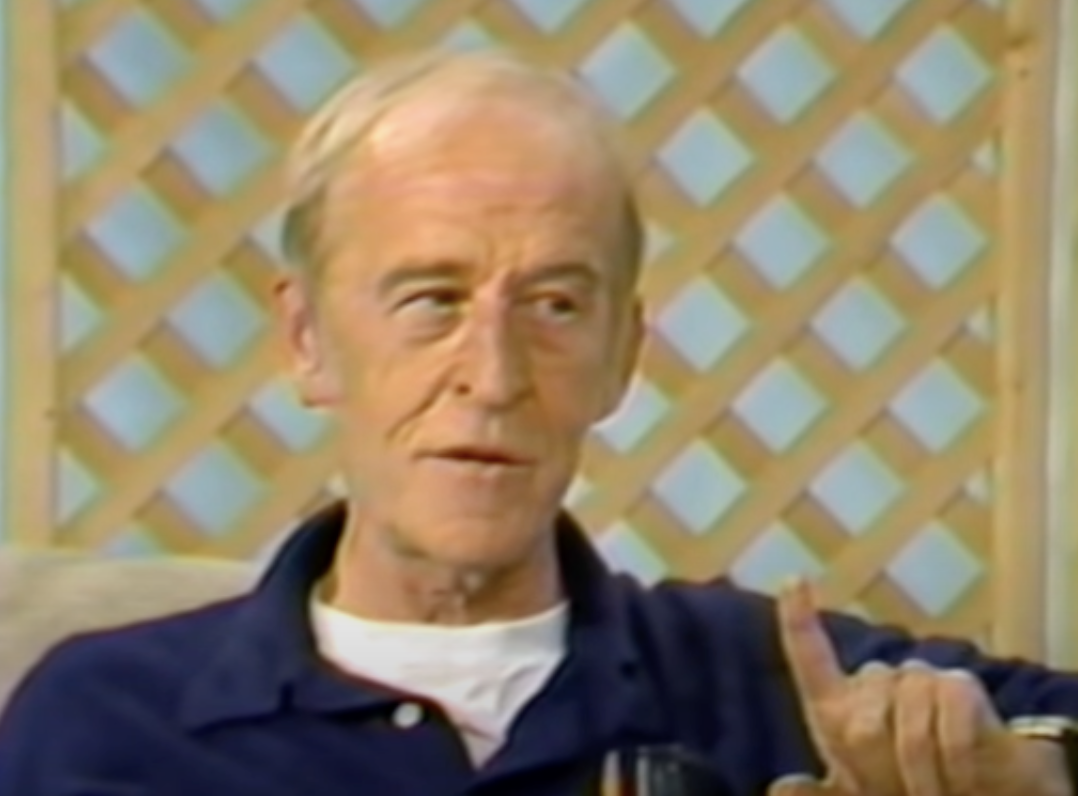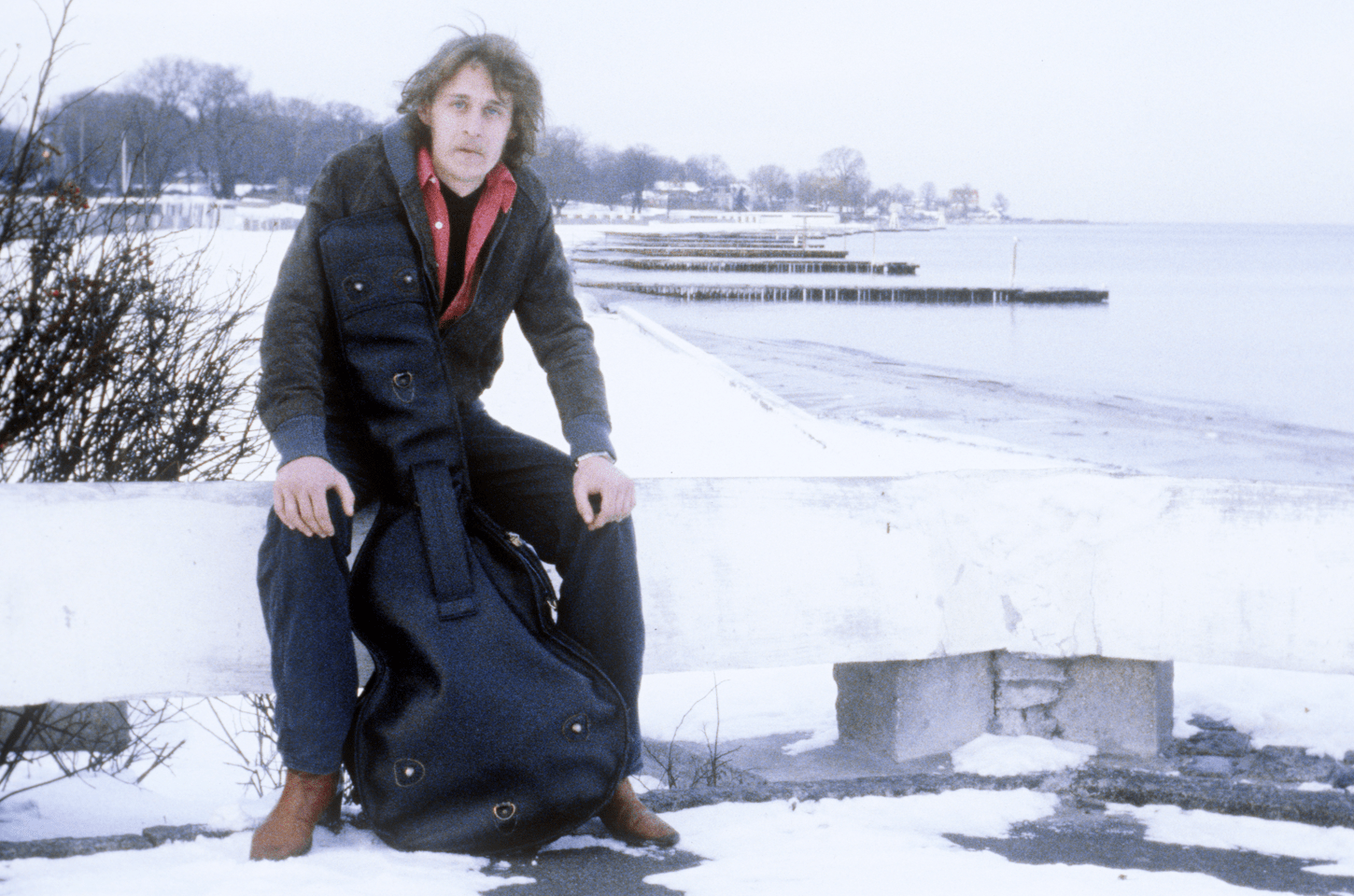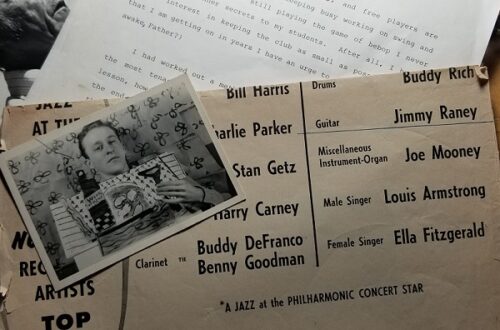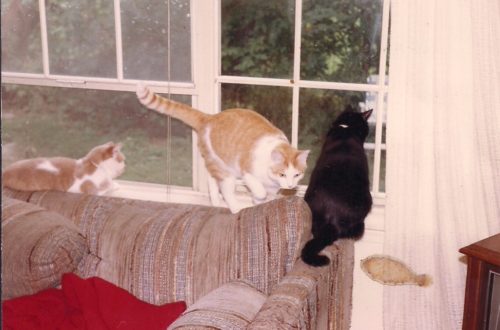On YouTube these days, you might notice an explosion of videos of musicians playing transcriptions of their favorite artists for others to watch. The quality varies widely, from seamless renditions with completed scores to pretty bad ones. And there’s an increasing number of Jimmy Raney solos out there as well. Doug’s too.
On the one hand, this increased and deserved exposure of the Raney contribution to jazz is certainly welcome given the chronic lack of recognition. But on the other hand, I am not certain about the intentions of the people doing them. I know my brother was suspicious of the growing trend certainly, while he was alive.
(Ofcourse that’s Doug, he was the cynic’s cynic).
But if performances of transcriptions are not done well, why are these YouTubers documenting this for everyone to see? Is the thumbs up and congratulatory public commentary too intoxicating to pass up? Who are they helping and ultimately is this making them better players? That’s the important question to ask because that is really what the transcription “building blocks” tradition was meant to address and it was largely done in private in the days before the Internet.
But even if you do accurate transcriptions and perform them well, the question of transcribing has always been a quandary for musicians. How much is too much? Could the constant pursuit of the next great solo undermine your ability to find your own voice? It’s an interesting question. My father, who did a lot of Charlie Parker and Bud Powell transcribing himself early on, gave me this practical take on transcriptions: “Do a good amount of it. Then stop doing it” – was pretty much what he told me.
And what about the latest YouTube posters’ trend, deigning to teach others the styles of the jazz greats – demonstrating a few transcribed licks slowed down and sped up – before developing a musical voice of their own? To me this is a little annoying. My brother called this practice “wannabeism”.
(Can you hear Doug’s voice? I know I can, at least in my head. Wish you could, too).
I think if Dad were around, he might say that musicians are after the wrong thing today. The point of transcribing is to jump into the mind of the artist who did the solo and then – somehow – come up with a similar but different working principle to develop your own voice. Not learn them and immediately show them off on your YouTube channel. If someone came to him for a lesson and rattled off a transcription of his note for note, I’m sure he’d say, that’s great but what do you sound like?
On that note, I recall Dad telling me about the guitarist, René Thomas who came down from Canada to visit him. René played a bunch of Raney solos, right there in front of him. My father was amused at all this, but my mother was not at all. She was incensed and pulled Dad aside and said, “He’s stealing your stuff!”
My instinct is generally the same in regards to transcriptions. When I see full piano transcription collections online, I am impressed at the musicianship skills needed to accomplish this, but I always to try to find videos of the transcriber’s own works. If that work is not worth listening to, I have to ask, what is the point then, ultimately? Isn’t the point to be great yourself?
I think the proper tradition was established centuries ago. Composers often did variations on themes by other musicians they admired. Not an easy task for sure, but people endlessly regurgitate the ideas of others without presenting any original ones of their own, and it’s not a good thing. Not just in music, but generally speaking. The world and its collective imagination gets smaller because of it.
Now before I get too comfortable on this soapbox, let me say personally – that I get it. We all like to show off a little, overshare and Youtube, Facebook and other social media platforms are the perfect forum to do so. Vanity is an unfortunate quirk of human nature and the designers of the technology built it in such a way to exploit this failing of ours.
But getting back to the main point, does transcribing a lot make you better? The answer honestly is, it depends. Miles Davis in an interview famously talked about developing your own voice in jazz and said in that hoarse voice of his, “It takes a while before you sound like yourself”. And he was right, but I think there is a gap in that point A (where you’re still trying to find your voice) and point B (when you’ve found it) that people fill in with a bit of magical thinking. I think that some feel like this “becoming” happens on its own organically after transcribing X number of solos. It doesn’t, trust me. You have to work on your own ideas fervently.
What you can do, that my father also recommended was to write out your own solos. This is not for the purpose of performing them verbatim on a gig. That would be bad. It’s really for fleshing out your own language and honing your ability to compose and put together ideas over longer stretches of time, evaluating the entire solo. You have to get it out of your head and hear how it all hangs together, then make corrections, deletions and improvements. Just like any good story.
We all have ideas in our head, but a coherent speech requires preparation and editing; and you have to do enough speeches so that these thought hunks begin to follow each other in logical, varied ways, never quite the same way each time. But, then you have to turn all that self-consciousness preparing off and let your instincts take over when performing for an audience. Dad often said that when he put in a worked-out idea consciously in a solo, it was like he “stitched in” the idea.
This process paradox was talked about brilliantly in my “Jimmy Raney Get’s Deep into It” video on my homepage where he said:
"I don't mean to say I believe in rational playing in any sense because anything I can figure out is not as good as what I can improvise if I'm really going. It's more subtle"
Later on, along the same lines he continued:
“
I don't believe that figuring, calculating or rational thought is ... you cannot figure how to play a good solo. It's unquestionably not so, in my mind.“
Now, you may say, rightfully, Ok so what’s the point of writing out solos, if they’re never as good as an improvised one? There’s two things I can say to that. First, he did them anyway, and lots of them, for himself and others (including me), even after he was an established master. It could not of been a waste of time because of how well his solos hang together. Almost better than anyone’s.
The second is answered by one of the final things he said in the above referenced video, where he draws an analogy between the moments of musical inspiration with those of breakthrough scientific discoveries, but also emphasizes that this couldn’t have happened without a lifetime of study and preparation for that moment:
“
... And he woke up and he had it1. But it takes someone who spent their life understanding this. But the moment of inspiration was unconscious and this happens all the time with creative people in physics, or in painting, or in music or in writing, but they're prepared for these discoveries, you see.“
In other words, preparing solos and a lifetime of study of the art of improvising is a step in the process to achieve something even greater in your most inspired musical moments. He makes numerous references to the pursuit of this ideal mental state and occasional achievement of reaching it in this video.
I also have seen line (aka jazz lick) studies and analysis on Youtube channels as well. Though breaking solos down and analyzing the phrases or cataloging II-V licks of the masters would seem to be logical way to build and model solos, this a little of that magical thinking as well and the results when trying them out for yourself are invariably dull.
Why is that?
I think this goes back to what Dad was talking about the conscious mind, “figuring” things and “stitching in” ideas. There is no inspiration there. The ideas have to occur to you spontaneously. They may be an idea you’ve played or worked out, but only partially and maybe in a different context. Or perhaps something you heard someone else play, or in a different song or perhaps an entirely different genre.
In the end, being a great transcriber, style expert or teacher of same to an invisble YouTube audience doesn’t make you inspiring. Learning how to play coherently, spontaneously, accurately and as unself-consciously as humanly possible in the moment is what does that. Be self-reflective and always trying to say more with less.
Eventually people will be transcribing you.
Happy Birthday Dad!
Your spirit is still alive and well.
- Refers to August Kekulke’s perhaps apocryphal dream discovery of the Benzene ring in the 1840’s ↩︎




One Comment
Alain Wilsch
100 % agree !